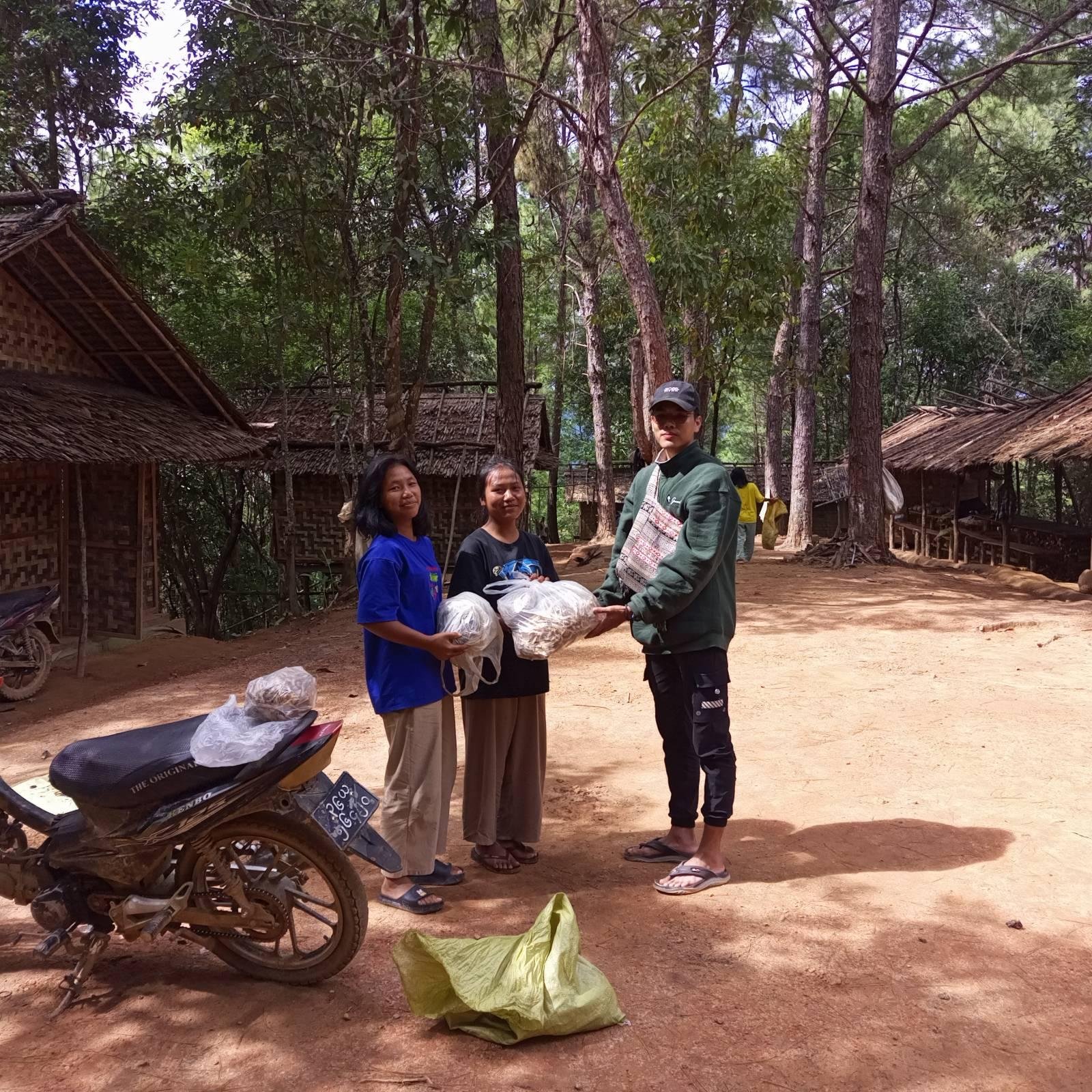Sagaing's Silent Siege: Survival Amid the Flames
Sagaing, one of Myanmar’s largest regions, has become the epicenter of the country’s internal conflict. Home to over a million internally displaced persons (IDPs), the people of Sagaing are bearing the brunt of the military's most aggressive tactics. The region, which once thrived with agricultural communities, is now defined by its high-risk status, constant evacuations, and ongoing bombardments. Villages have been burned, homes destroyed, and families uprooted as the military pushes through, creating a living nightmare for those left behind.
The crisis in Sagaing has caused unimaginable suffering. Entire communities have been forced to flee at a moment’s notice, leaving behind everything. Many have found temporary refuge in makeshift IDP camps, but even here, safety is not guaranteed. The military frequently targets these camps, burning shelters and attacking civilians. Fires, whether from airstrikes or arson, are a constant threat, and many families lose what little they have left. Some camps have been burned down entirely, forcing IDPs to relocate again and again. The constant displacement has left families exhausted, with nowhere to go and no stable shelter.
For those who manage to survive, the situation remains grim. The camps are overcrowded and undersupplied. Clean water is scarce, and sanitation is virtually non-existent. With no reliable source of food, hunger is widespread. Families are forced to ration what little food they have, and many go days without eating. Children, especially, are suffering. Malnutrition is rampant, and without access to fresh food, many are becoming severely stunted. Mothers are struggling to feed their babies, with many unable to produce enough milk due to their own malnutrition.
Local teams supported by Better Burma, with funds allocated from the contributions that our donors have so generously provided, have been working tirelessly to bring relief to these camps. They have focused on providing life-saving food, medicine, and hygiene items to the most vulnerable groups, including orphaned children, the elderly, and the disabled. Despite the dangerous conditions, they have managed to distribute rice, lentils, oil, and other basic supplies to hundreds of households. In a recent distribution effort, they reached over 600 families in three targeted areas, providing enough food to sustain them for at least a week. The impact of this aid cannot be overstated—it’s the difference between life and death for many families.
Medical care in Sagaing is another urgent need. Hospitals and clinics have been destroyed, and the few that remain are inaccessible due to military blockades. Local medics have set up mobile clinics in the camps, but they are overwhelmed. With limited supplies and no access to proper medical facilities, they are struggling to provide even basic care. Many of the injuries they see are from landmines, gunfire, or airstrikes, and without the necessary equipment, they can only do so much. Pregnant women, too, are at risk, giving birth in unsafe conditions without medical assistance. Tragically, we have been told that many newborns do not survive, and those who do are at extreme risk of malnutrition and disease.
The psychological toll of living in constant fear and instability is immense. Children are particularly affected, with many suffering from deep trauma after witnessing their homes being destroyed or their loved ones killed. In the camps, there are no schools, no safe places for children to play, and no sense of normalcy. Instead, these children are growing up in a world of uncertainty and violence. For the adults, the strain of caring for their families in such dire circumstances is overwhelming. Many have lost hope, unsure of when, or if, this nightmare will ever end.
Despite these challenges, the resilience of the people in Sagaing is remarkable. Local aid teams continue to risk their lives to bring relief to those in need, and they are making a difference. The recent delivery of food and medical supplies that we were able to support brought not only nourishment but also a sense of hope to families who had been left with nothing. But the needs are still enormous, and without continued support, the situation will only get worse.
If you’ve already contributed to the relief efforts in Sagaing, your generosity has been lifesaving. Your donations have helped provide food to children who would otherwise go hungry and medical care to the injured. But the crisis is far from over. Every day, more families are displaced, more children fall sick, and more lives are put at risk. We are asking for your help again. Every contribution, no matter the size, makes a direct impact on the lives of those suffering in Sagaing.










